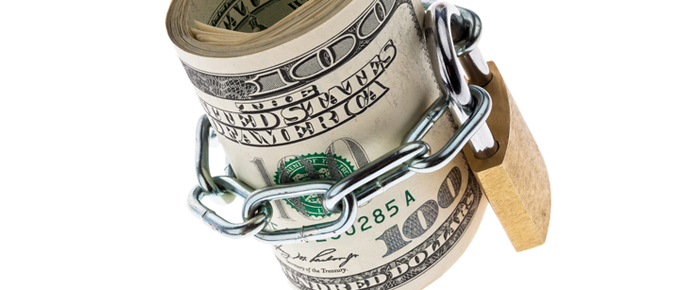
By Bruce Cathcart
Moving generally sucks and the last thing you need at this time is the additional hassle of dealing with an uncooperative landlord or property manager when it comes to getting your security deposit back. This article will conclude my series on renting and will provide renters with my best advice on how to get all (or as much as possible) of their security deposit back.
The best way to insure that you will get your security deposit back is not to rent from landlords or property managers that have a bad reputation for bogus charges and bilking tenants out of their security deposits. Before renting any property run the property manager’s or landlord’s name online through any search engine, yelp.com, apartmentratings.com, or check them out through the Better Business Bureau or local real estate sites to see if there are any complaints against them. Once you determine that you are not renting from Dewey, Cheatem, and Howe you can move forward with your rental agreement or lease.
Know your rights! In California there are no non-refundable deposits. Any reference to non-refundable deposits in the rental agreement are unenforceable. The maximum amount of security deposit a landlord can request is an amount equal to two month’s rent for unfurnished dwellings or an amount equal to three month’s rent for furnished dwellings. Deductions from your security deposit can only be made for damages to the premises beyond “normal wear and tear”, excessive filth, or unpaid rent. Two common examples of normal wear and tear vs. damage would be moderate dirt and carpet spots vs. tears, stains (oil, pet, Kool-Aid, etc.) and excessive filth or odors; or minor marks and nicks in the walls vs. large marks or holes and/or lots of picture holes that require patching and painting. Landlords or their property managers must return tenant’s security deposit, less any deductions in an itemized statement, within 21 days after possession of the property is surrendered (when the property has been vacated and the keys have been delivered to the Landlord or property manager).
Upon move in it is very important that you complete a move-in/move-out agreement. This form will allow you to document the condition of the property. If one is not provided take it upon yourself to make your own or find one online. Document every defect with both photos and specific, descriptive observations. For example rather than writing, “damage to carpet” you should write, “cigarette burns, hole, and frayed edges in hallway carpet”. Do this for every room and check all appliances, fixtures, electrical and mechanical systems. If possible do a walk-through with your landlord or property manager to verify the items on your list and have everyone sign the form. If this is not possible send a copy of your list and photos via certified mail to your landlord or property manager and keep a copy for your records. Try to determine the age of certain items (like the carpet, the paint, etc.) at this time and include it on the form.
While you are in your home you must maintain it! Keep it clean and make sure you notify your landlord/property manager immediately for necessary repairs not caused by your own negligence. Obviously if you break it, you fix it (like windows, sprinkler heads, window blinds, just to name a few common items that tenants accidentally break).
Before you move out make sure you give the landlord/property manager the proper notice (usually 30 days, but check your rental agreement). You will be charged for any days less than the minimum or any extra days you remain in possession beyond your notice. Make sure you include a forwarding address with your notice for your refunded deposit to be sent!
Upon move out make sure there is no damage to the property, the home is clean, and there is no trash or debris left on the premises. Repeat the documentation process on your move-out form by verifying the condition of the home and taking photos of the property. Once again, if possible, do a walk through with the landlord or property manager to verify the condition of the property. Make sure you leave the property in the same or better condition than when you moved in (with only some normal wear and tear) and you should be entitled to a full refund of your deposit.
Real Estate Tip of the week: Buy a home and never deal with security deposits again!
Bruce Cathcart is the Broker/Co-Owner of La Quinta Palms Realty, “Your Friendly Professionals” and can be reached by email at laquintapalms@dc.rr.com or visit his website at www.laquintapalmsrealty.com.








































